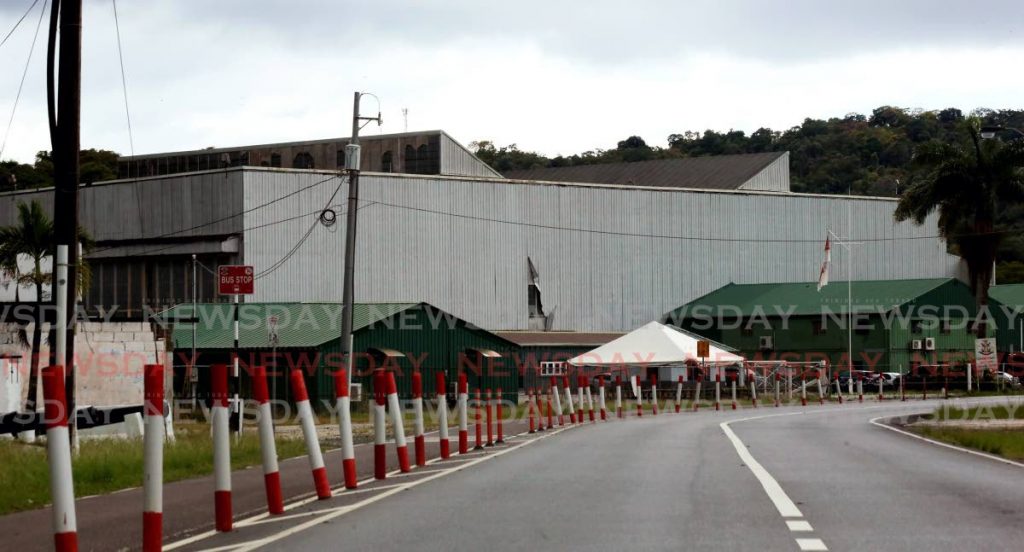Venezuelan mother, son who entered Trinidad and Tobago illegally to stay at heliport

THE COURT of Appeal has dismissed the appeal of a Venezuelan mother and son who challenged their detention, because a deportation order was issued for their return.
They entered Trinidad and Tobago illegally in November last year as part of a larger group.
The deportation order was stayed by order of Justice Avason Quinlan-Williams.
The mother and son are detained at the Chaguaramas heliport.
Another judge, Justice Margaret Mohammed, held there was a lawful basis for their detention, since the Minister of National Security issued a valid deportation order. She refused to order their release.
The Court of Appeal had to determine whether the two were entitled to be released under a writ of habeas corpus, and if their detention for an indefinite period was unreasonable and made it unlawful.
In their ruling, Justices of Appeal Prakash Moosai, Gillian Lucky and Mira Dean-Armorer held that the Immigration Act clearly provided a scheme for the detention of prohibited people pending their deportation, and after making the order, the minister was empowered to issue a warrant of arrest for the person in question.
The minister was also empowered to make an order of detention, Dean-Armorer wrote in delivering the unanimous decision.
On the lawfulness of the continued detention, the judges pointed out that detention under the act can only be for the purpose of deportation, and while it could not be for an indeterminate period, it must be pending the person’s return.
In considering whether it was unreasonable, Dean-Armorer said there was no evidence the immigration authorities were unwilling or incapable of deporting the two. She said the delay in this process, and their continued detention, was as a result of their invoking the court’s processes and obtaining injunctive relief to hold up their return.
She said it was in their power to end their detention.
“This will clearly end their restraint as they return to their country and their liberty is restored. The appellants are therefore subjected to self-induced restraint.”
She added, “There was every intention on the part of the respondent to bring the appellant’s detention to an end by giving effect to the deportation order. Doing so now, however will be unlawful and in contempt of the court order.
“It cannot be said at this time that deportation will not be possible. This will only be so, if and when the court seized of the constitutional motion so rules.
“When that day comes, if the court finds deportation unconstitutional, the immigration authorities will be required to recognise that they will no longer be able to effect deportation.” She said reasonableness must be measured by the court proceeding and unless it can be shown that this was being unreasonably protracted, as long as it is receiving the attention of the courts “it seems that the detention is with the band of a period which is reasonable.”
The Court of Appeal also pointed out that if the motion was dismissed, the two must be available to be deported, but their release may result in their absconding, frustrating the valid deportation order.
“The court cannot shut its eyes to the real possibility that the appellants will abscond. Their illegal return, following their initial escort out of Trinidad speaks eloquently of their desire to remain in Trinidad. They did so in breach of the laws of this and their own country.”
They also said there was no allegation of unacceptable or unsatisfactory conditions at the detention centre.
They were confident that the judge hearing the motion would give a decision by the end of 2021.
When they entered TT, the group of 20 or so Venezuelans breached TT’s then-closed border policy, which was specified in the covid19 regulations.
They were escorted out of TT by the Coast Guard, but returned days later. They were held again and detained in quarantine and then the deportation order.
Dean-Armorer said it was important to point out that TT, and the global community, were faced with a pandemic and the country’s borders were closed.
“The closure was absolute, so that even TT citizens, stranded abroad, were not allowed entry,” she said.
The mother and son were represented by attorneys Gerald Ramdeen, Umesh Maharaj and Dayadai Haripaul. The Chief Immigration Officer was represented by Senior Counsel Fyard Hosein, Rishi Dass and Raphael Ajodhia.


Comments
"Venezuelan mother, son who entered Trinidad and Tobago illegally to stay at heliport"